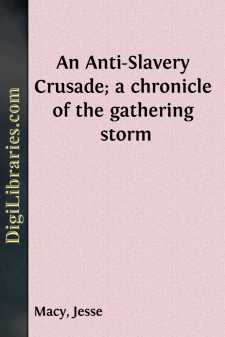Categories
- Antiques & Collectibles 13
- Architecture 36
- Art 48
- Bibles 22
- Biography & Autobiography 816
- Body, Mind & Spirit 145
- Business & Economics 28
- Children's Books 18
- Children's Fiction 14
- Computers 4
- Cooking 94
- Crafts & Hobbies 4
- Drama 346
- Education 58
- Family & Relationships 59
- Fiction 11831
- Foreign Language Study 3
- Games 19
- Gardening 17
- Health & Fitness 34
- History 1378
- House & Home 1
- Humor 147
- Juvenile Fiction 1873
- Juvenile Nonfiction 202
- Language Arts & Disciplines 89
- Law 16
- Literary Collections 686
- Literary Criticism 179
- Mathematics 13
- Medical 41
- Music 40
- Nature 179
- Non-Classifiable 1768
- Performing Arts 7
- Periodicals 1453
- Philosophy 66
- Photography 2
- Poetry 897
- Political Science 203
- Psychology 45
- Reference 154
- Religion 516
- Science 126
- Self-Help 86
- Social Science 82
- Sports & Recreation 34
- Study Aids 3
- Technology & Engineering 59
- Transportation 23
- Travel 463
- True Crime 29
Our website is made possible by displaying online advertisements to our visitors.
Please consider supporting us by disabling your ad blocker.
An Anti-Slavery Crusade; a chronicle of the gathering storm
by: Jesse Macy
Categories:
Description:
Excerpt
CHAPTER I. INTRODUCTION
The Emancipation Proclamation of President Lincoln marks the beginning of the end of a long chapter in human history. Among the earliest forms of private property was the ownership of slaves. Slavery as an institution had persisted throughout the ages, always under protest, always provoking opposition, insurrection, social and civil war, and ever bearing within itself the seeds of its own destruction. Among the historic powers of the world the United States was the last to uphold slavery, and when, a few years after Lincoln's proclamation, Brazil emancipated her slaves, property in man as a legally recognized institution came to an end in all civilized countries.
Emancipation in the United States marked the conclusion of a century of continuous debate, in which the entire history of western civilization was traversed. The literature of American slavery is, indeed, a summary of the literature of the world on the subject. The Bible was made a standard text-book both for and against slavery. Hebrew and Christian experiences were exploited in the interest of the contending parties in this crucial controversy. Churches of the same name and order were divided among themselves and became half pro-slavery and half anti-slavery.
Greek experience and Greek literature were likewise drawn into the controversy. The Greeks themselves had set the example of arguing both for and against slavery. Their practice and their prevailing teaching, however, gave support to this institution. They clearly enunciated the doctrine that there is a natural division among human beings; that some are born to command and others to obey; that it is natural to some men to be masters and to others to be slaves; that each of these classes should fulfill the destiny which nature assigns. The Greeks also recognized a difference between races and held that some were by nature fitted to serve as slaves, and others to command as masters. The defenders of American slavery therefore found among the writings of the Greeks their chief arguments already stated in classic form.
Though the Romans added little to the theory of the fundamental problem involved, their history proved rich in practical experience. There were times, in parts of the Roman Empire, when personal slavery either did not exist or was limited and insignificant in extent. But the institution grew with Roman wars and conquests. In rural districts, slave labor displaced free labor, and in the cities servants multiplied with the concentration of wealth. The size and character of the slave population eventually became a perpetual menace to the State. Insurrections proved formidable, and every slave came to be looked upon as an enemy to the public. It is generally conceded that the extension of slavery was a primary cause of the decline and fall of Rome. In the American controversy, therefore, the lesson to be drawn from Roman experience was utilized to support the cause of free labor.
After the Middle Ages, in which slavery under the modified form of feudalism ran its course, there was a reversion to the ancient classical controversy....


